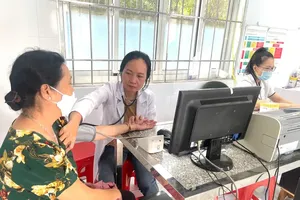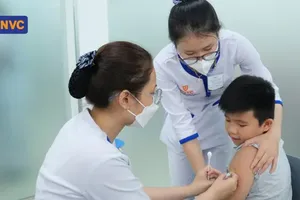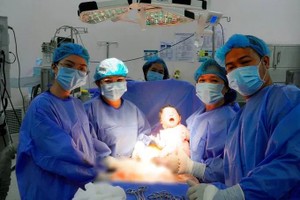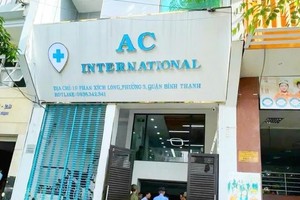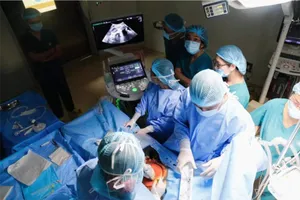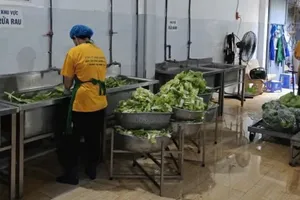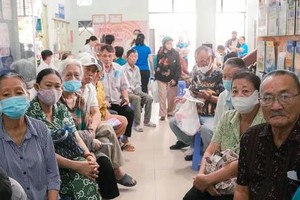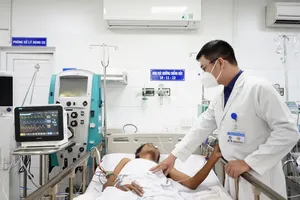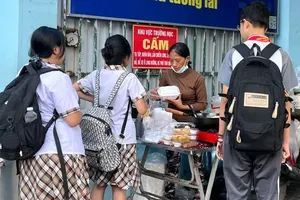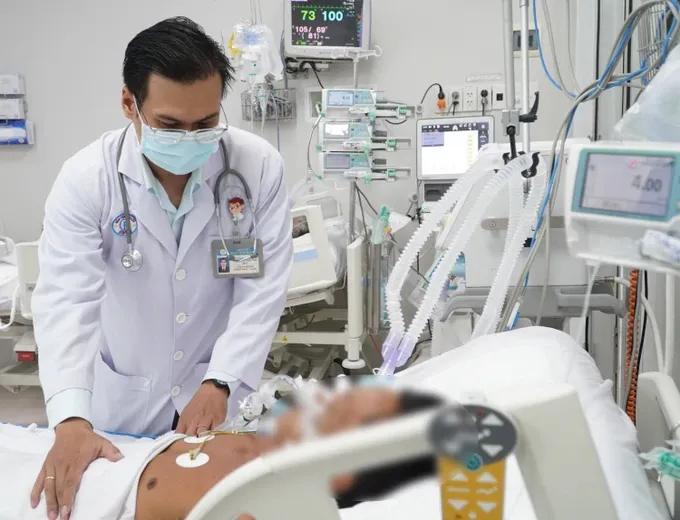
In late June, 18-year-old N.H.B.T from Dong Nai Province was rushed to Le Van Thinh Hospital in HCMC in a state of coma, with sudden loss of consciousness and cardiac arrhythmia. After ruling out cardiovascular causes, doctors suspected acute poisoning due to cyanide, given the patient's pulmonary edema, dilated pupils, and elevated lactate levels.
After discussing with experts from Cho Ray Hospital, the medical team immediately initiated hemodialysis to remove the toxin, and the patient's condition improved. However, it took two days to confirm the presence of cyanide in the patient's gastric fluid.
Similarly, in October 2023, 55-year-old P.M.T from Tien Giang Province was hospitalized after consuming a type of milk powder. He presented with shortness of breath, nausea, and loss of consciousness. Doctors suspected acute poisoning and initiated hemodialysis. Subsequent investigations revealed that the patient's younger brother had also consumed the same milk powder and had died.
The patient underwent blood filtration to remove some of the toxins from the body, and the progress improved significantly, showing that the treatment was correct. Based on the clinical and paraclinical developments, plus the state of poisoning, the doctors suspected 5 extremely strong, colorless, odorless toxins of Cyanide, organophosphate/carbamate pesticides, arsenic, strychnine, and botulinum. Investigation by the Tien Giang provincial police later showed that the culprit had mixed dog bait into the powdered milk to poison his relatives.
In 2020, Bach Mai Hospital in Hanoi reported the first cases of botulism food poisoning in Vietnam. This led to a series of similar cases across the country. The lack of readily available botulinum antitoxin posed significant challenges in treatment.
Cho Ray Hospital, a leading medical institution in Vietnam, has treated approximately 14,294 cases of acute poisoning over the past decade. The hospital has encountered rare types of poisoning, novel toxins, and substances containing multiple toxins, which can alter clinical symptoms
According to Le Quoc Hung, MD PhD, Head of the Tropical Diseases Department and Poison Control Unit at Cho Ray Hospital, diagnosing and identifying toxins is extremely challenging. The waiting time for test results can be lengthy, while patients may succumb to the poisoning within minutes. Doctors must rely on epidemiological factors, clinical symptoms, and laboratory tests to make a diagnosis.
However, the availability and accuracy of toxicology tests in Vietnam remain limited. In some serious cases, the results in gastric juice, feces, blood, and urine are all negative because the testing technique in Vietnam can only detect the toxins at high concentrations. Therefore, he emphasized the need for hospitals to collaborate with specialized centers to accurately identify toxins. This would significantly improve patient outcomes.
Cho Ray Hospital has established a process for coordinating toxicology tests with the HCMC Forensic Center and has collaborated on scientific research with poison control centers in the UK and Taiwan (China) to improve the quality of treatment.
According to experts, in addition to the challenges of toxicology testing, Vietnam's poison control system faces other obstacles such as expensive and unavailable antidotes, a lack of connectivity between intensive care and poison control units, limited scientific research in the field of toxicology, a shortage of experts in critical care and poison control, and treatment protocols that are not updated in line with scientific and technological advancements.
These challenges make it difficult to provide optimal care for patients who have been poisoned.
